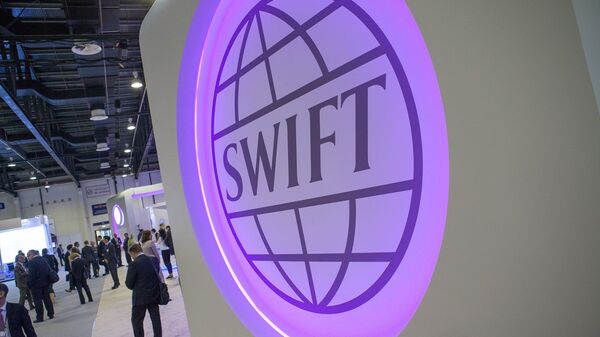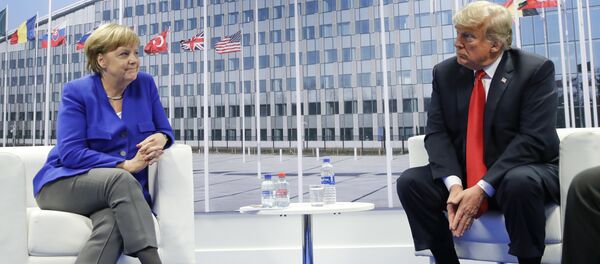Alexander Shokhin, president of the Russian Union of Industrialists and Entrepreneurs, a major lobbying group promoting the interests of Russian businesses, both state and private, has expressed support for Russia joining new financial telecommunications networks established by either the European Union or China.
"Some of Gazprom's partners on the Nord Stream 2 project are saying that if secondary sanctions will not allow them to carry out settlements in US banks (and any dollar settlement is a corresponding account in US banks) they will be forced to withdraw from the project," Shokhin explained, speaking on Russian business TV network RBK.
"Europe has not yet found a way, as seen with the example of Iran, to circumvent these secondary sanctions. If Europe does find a way, if they create a payment system like SWIFT, but based on the euro, we will need to join them. Perhaps the Chinese will help us create something [similar] based on the yuan," he added.
In a related note, Shokhin pointed out that Russia cannot simply 'turn to the East' and refuse to cooperate with US financial institutions altogether in favor of its Chinese partners, given that Asian financial structures are also dependent on the US financial system.
"As far secondary sanctions are concerned, large Chinese banks and other banks from the ASEAN countries, will be cautious. As transnational structures, they will be sure to weigh both the situation in the US market, and contracts in dollars to see how they respond. Therefore, simply 'turning to the East' and saying 'We don't need the Americans now, we can replace them with the Chinese, the Koreans, the Japanese, the Filipinos, the Vietnamese', this is not possible."
Last week, in an address to German diplomatic workers, Foreign Minister Heiko Maas confirmed that the EU was working on an alternative to SWIFT as part of its efforts to save the Iran nuclear deal. After the US withdrawal from the landmark nuclear agreement in May, Washington threatened to hit European companies doing business with Tehran with secondary sanctions, i.e. measures against individuals or companies cooperating with Iranian enterprises. The US has made similar threats against energy concerns partnered with Russia on the Nord Stream 2 project, a 1,200 km pipeline set to run from Russia through the Baltic Sea to a hub in Germany.



